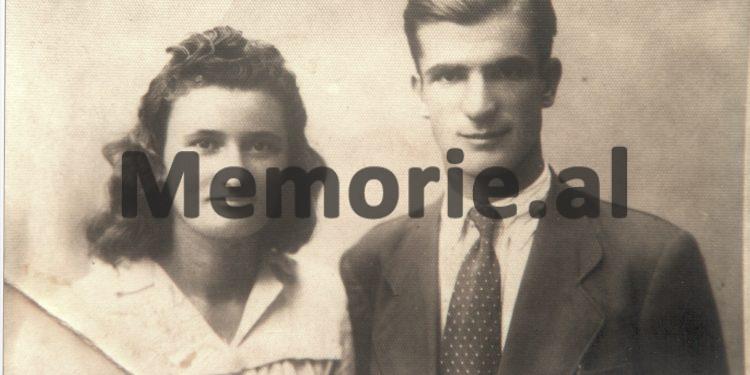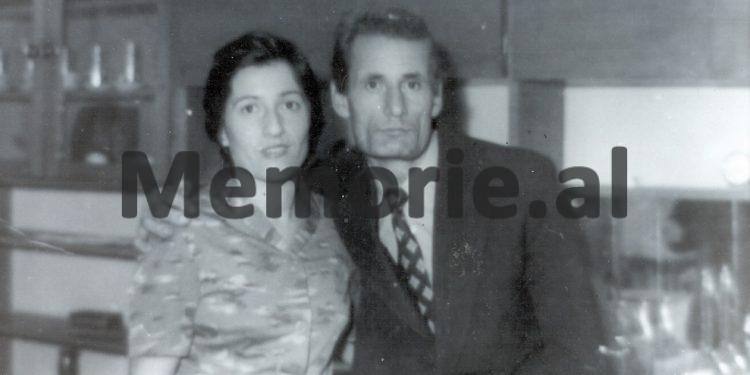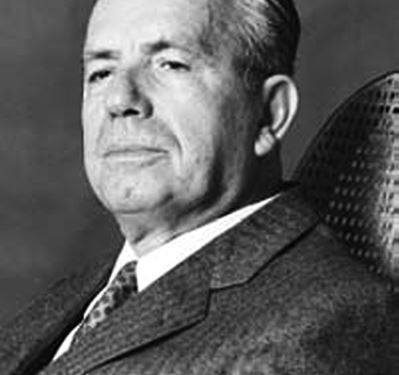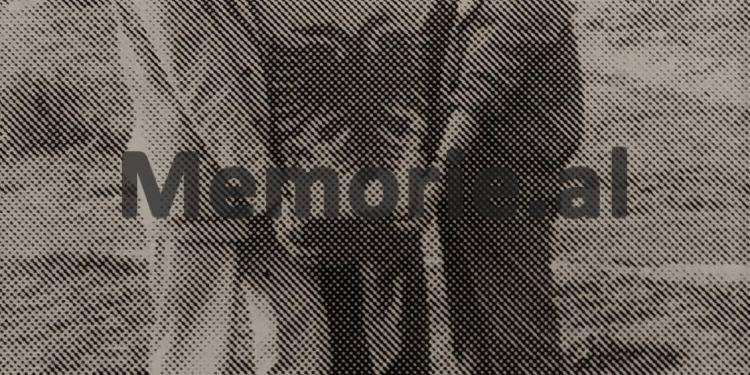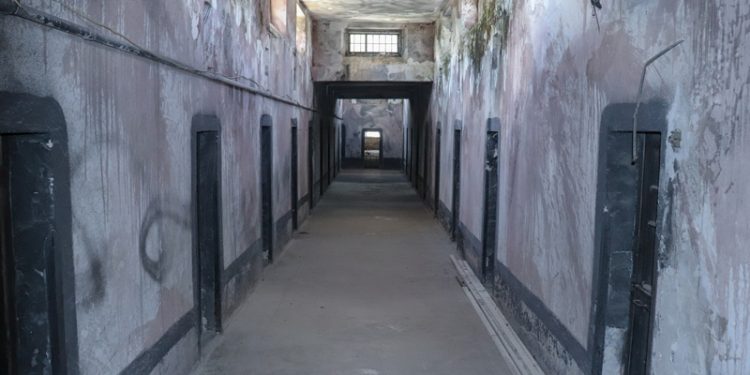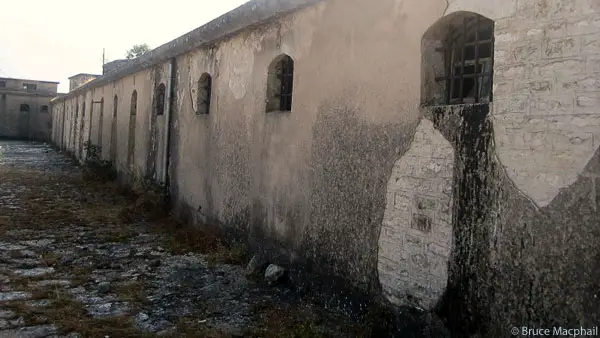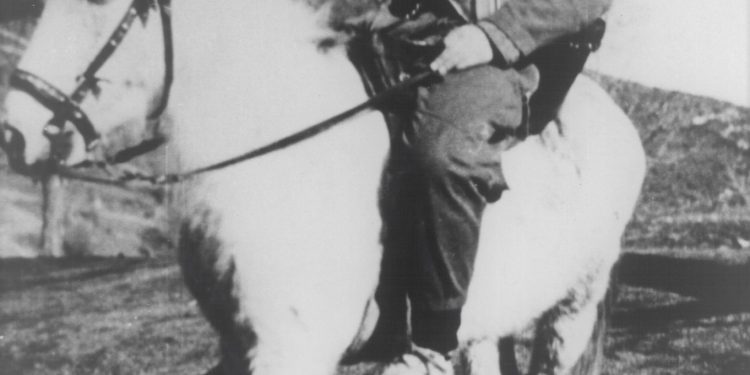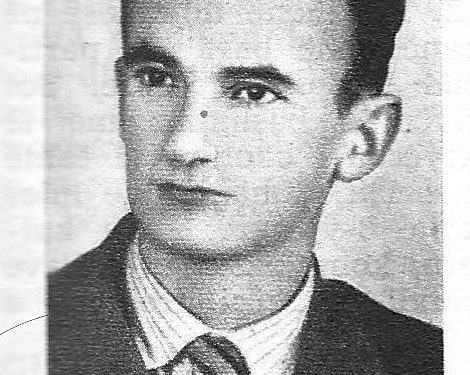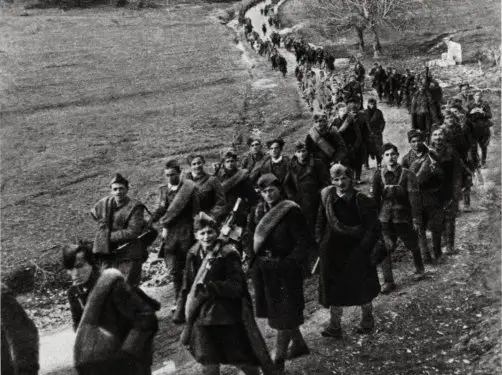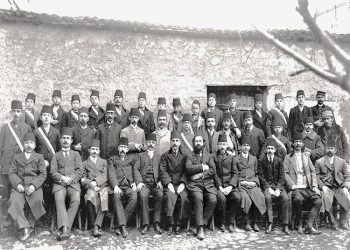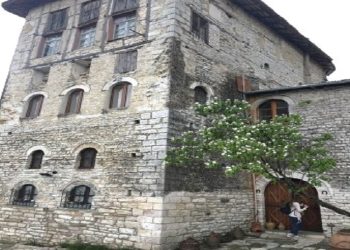Dashnor Kaloçi
Memorie.al publishes the unknown story of Ferhat Thaçi, originally from the city of Gjakova, who after being orphaned at a very young age when his father, Hulusi Thaçi, a well-known patriot, was killed by Ceno Beg Kryeziu in In 1924, with the help of his uncle, Muharrem Thaçi, who was the Mayor of Krumë, Krhati came to Albania in 1937, where with a scholarship from the government of the Zog Monarchy, he graduated from the American Agricultural School of Golem, Kavaja. Ferhat’s acquaintance with Nako Spiro in the district of Durrës, where he first engaged in the Anti-Fascist Youth and then with the Communist Youth, from where Ferhat went to his hometown in Gjakova, where he became closely associated with Emin Duraku, becoming one of his closest collaborators and later in the Kosovo partisan gang, commanded by Fadil Hoxha, where his house in Gjakova became one of the main bases of the illegals and as a result, he was arrested by German forces and barbarically tortured by tire. Ferhat returned to Albania immediately after the end of the war, where he met his two brothers, Hilmi, who worked in the Ministry of Culture, and Qemali, who had returned from studies in the Soviet Union, as a lieutenant in the military, who helped him stabilize by working in the Ministry of Agriculture and Forests, until in 1949, he was arrested by the State Security, accused of being a member of the “Resistance Group”, and died under torture in the Gjirokastra Castle prison in 1950. The many vicissitudes of Spartak Thaçi, son of Ferhat, who grew up in the Orphanage in Vlora, Durrës and Tirana, who after being able to find his mother when he was 14 years old, after 48 years, managed to find even the bones of his father!
“Until the age of 14 when I grew up in the Orphanages of Vlora, Durres and Tirana, I did not know anything about who my parents were and I could only learn that when one of my uncles, Skënder Guaranjaku, came and took me at the Durrës Orphanage and sent me to Elbasan to the house of my mother, Emine Guranjaku, who was married and had three other children. While there I met and met for the first time with my mother and learned who she was, for my father, I could not learn anything from him, throughout the period of the communist regime of Enver Hoxha. I only found out the truth about my father after the ’90s, when after much interest, to some of his accomplices, who told me how and where he had died.
“This is what Spartak Thaçi testifies for the first time for Memorie.al, who tells the whole painful story of his life, how he grew up in the Orphanages of Vlora, Durrës and Tirana, as well as the endless vicissitudes of finding the bones. of his father, Ferhat Thaçi, a former partisan who died under torture in the Gjirokastra Castle prison in 1953.
What was Ferhat Thaçi’s past, why was he arrested and how did he die under the torture of the State Security in Gjirokastra Castle?
Ferhat Thaçi, the orphan who found his mother after 14 years!
After being orphaned at the age of two, Spartak Thaçi had grown up in the Vlora, Durrës and Tirana Orphanages, hoping that one day he would meet his mother, after one of the primary school teachers told him that she was alive. . This became possible in 1964, which Spartak still remembers with tears in his eyes, saying: “At that time I was in the Durrës Orphanage and someone informed me that a person named Skënder Guranjaku was looking for me, who was introduced to me as my mother’s brother. He, after talking to the Directorate of the Orphanage, told me to put in the pillowcase all the underwear I had and as soon as I got them ready with lightning speed, I immediately left the Orphanage and he took me with him, sending me to the city of Elbasan. When we got there, he sent me to a house which belonged to my mother, Emine Guranjaku, who was the sister of the famous writer, Qamil Guranjaku. There I met and met for the first time my mother, who was remarried and had given birth to three more children. As soon as I met my mother, my stepfather, he said to his uncle, Skënder: “I will never separate this boy from the three children I have.” After that, I listened to the conversations that my mother had with her husband and in order not to cause trouble between them, I called my uncle and told him to take me with him to Tirana. He agreed and when I was going to the train station with him and my mother, I took the opportunity and asked him: “Mother, it’s good that we met, can you tell me who my father is”? But my mother was silent and told me not to talk about it anymore and there we parted. “While I got on the train and came to Tirana where for six of you I stayed at the house of my uncle, who was a geological engineer and took me and put me to work, stabilizing me in his undertaking with probes”, remembers Spartak Thaçi, meeting his mother his after 14 years.
How did he learn his father’s name?
While he first met his mother when he was 14 years old, for his father Spartacus could not afford anything until the early 1990s, when the communist regime of Enver Hoxha had just collapsed. In this regard, he says: “About the time and conditions that were then, my mother never told me a word, not only who my father was, but also his name. I can learn them only after the ’90s, by taking interest with friends and comrades and looking for documents in the Archive of the Ministry of Internal Affairs. From the documents I found there, I learned that my father, his name was Ferhat Thaçi and he was arrested in 1950, being accused of being a participant in the organization “Resistance Group”. I cannot tell you anything, if indeed my father, Ferhati, was a participant in that organization, or that thing was just an accusation fabricated by the State Security, as was happening at the time, but in The accusation that I received from the archive reads: “Ferhat Thaçi, son of Hulusi and Hava, born in 1921 in Kosovo, Yugoslavia, with decision no. 141, dt. 9. VII. 1952, of the Supreme Military Court, was sentenced to ten years of imprisonment, for accepting to be part of the organization ‘Resistance Group’, agitated and propagandized against the government, made efforts to expand the group with new elements; he tried to escape to Yugoslavia. “After that, I became interested and found three people who had been in prison with my father, in Gjirokastra Castle, who were: Nazif Selimja, Diell Cami and Ali Muharrem Alla. They told me that my father, Ferhati, had died under torture and the day before his death, as if anticipating his tragic end, he had spoken to them, saying: “Because of the Serbian genocide, I left my hometown in Gjakova and I came to Albania in 1935. But then, it would never have occurred to me, that here in my homeland, for which I took part in the war with weapons in hand, I had woven so many beautiful dreams, they would reserve such an end, locking me in these dark cells, without doing anything wrong… “, remembers Spartaku, the last words of his father, learned from his friends, co-sufferers in the prison of Gjirokastra Castle.
Finds his father’s bones after 43 years!
After Spartak Thaçi learned who his father had been and how he had died in the Gjirokastra Castle prison, he became interested in finding his remains. In 1994, when I was still working on geology, I was sent to Gjirokastra, where we drilled to strengthen the castle walls. There I met a man who had worked in the State Security, who was a little frightened by the conversation I had at the beginning, but when he realized that I was a peaceful man, he promised to help me, giving me some names, who in fact they showed me nothing. I went back to the man who guided me to meet the ‘gravediggers’ who had served in the Castle prison. Out of four people, only one of them was still alive and his name was Maliq Çingi, to whom I went home and told him who I was and what I was looking for. He admitted that he had worked as a ‘scoundrel’ at the Castle prison, and when I took out the picture of my father, he said to me: in the civil cemetery of the city of Gjirokastra and at the head I put a 20 cm tin with 50 cm. After that, we went to the cemetery and when we started digging, two women came to us and asked us what we were doing! After we told them, they told us they had the cemetery register book that also had my father’s name and burial place. This made it possible for us to quickly find the place of burial and the remains of my father, Ferhat “, concludes his story, Spartak Thaçi, regarding his efforts to find the remains of his father.
Autobiography of Ferhat Thaçi gone to the prison of Gjirokastra Castle
The biography of Ferhat Thaçi from the origin of the family until the day he was arrested by the State Security is written by him during the time he was in the investigator and its original, which we are publishing in this article, is in the Archive of Ministry of Internal Affairs. In that autobiography, it says:
“I come from a patriotic family and I was born on April 6, 1921 in the city of Gjakova in Kosovo, where our origin is from. My father, Hulusi Thaçi, who was a patriot, was killed in 1924 by Ceno Beg Kryeziu. After the death of my father, we grew up an orphan with great suffering and I, with my other two brothers and our mother, remain in Gjakova. In 1931, the elder brother, Hilmi Thaçi, with the permission of his mother, came to Albania to do the Albanian school and after him in 1932, with the support and help of his uncle, Muharrem Thaçi, who was the Mayor of Krumë, I came and I, with the help of his friend Hil Mosit, managed to get a scholarship as a boarder at Krumë School. In 1937 I finished primary school in Krumë / Krumë and in the same year I lost my scholarship due to the Yugoslav citizenship I held. After staying for a year working as a servant, at the end of 1938, I won a state scholarship to the Agricultural School of Golem in Kavaja, with the interest of my older brother, Hilmi Thaçi, who had graduated from this school in 1937. There I had an American director. Being in the school of Kavaja, I was organized by comrade Nako Spiro, in the Antifascist Youth and later in the Communist Youth. During the period I was in that school, I was one of the main organizers of the strike that we students did against some Italian professors. In June 1942, I finished school and went to Gjakova, where I fell in love with Emin Duraku, becoming one of his closest associates, who organized me in youth affairs, and later joined the Party Communists of Yugoslavia. On November 12, 1942, we went underground and I stayed in the Kosovo gang with Commander Fadil Hoxha, until June 1943. During that period of time, my house in Gjakova became an illegal nursery and a place for meetings and other activities uninterrupted. Also during the time I was a partisan in the years 1942 – ’43, I formed the National Liberation Councils in the villages of Gjakova and Peja in very difficult conditions at that time, full of suffering and sacrifice, until I was taken prisoner on June 28, 1943. During When I was arrested at the Prizren Police Station, I was barbarically tortured, and I was even electrocuted twice, where as a result my nerves were destroyed and my heart was weakened. I was sent by the Prizren Police Station to the Tirana Prison, where I stayed until the capitulation of Italy. There, due to some of my views on the Kosovo issue, I fell out with some of my other comrades and withdrew from the Party. After the capitulation of Italy, I went back to Kosovo where I dealt with the affairs of Ajit – Prop of the Party in Gjakova. After the liberation of Gjakova, I worked again in Ajit – Prop. And I have always been strong in refusing to become a tool of Yugoslavia. I stayed here until February 5, 1945 and then I came to Albania, where I stayed for a few days in Tirana without work, next to my brother, Hilmi Thaçi, who at that time was in charge of the Ministry of Culture. After some time, I got a job at the Ministry of Agriculture and Forestry, as an agronomist assistant, and was sent to serve in the Gostima district and later in Kavaja. In May 1947, I was called to arms at Ward 309, where I remained until January 1948, when I was transferred to the Discipline Battalion in Cërrik, Elbasan. After I was bored of military life for family reasons, my boredom was interpreted as dissatisfaction. But after some time, with the interest of my brother, Qemal Thaçi, who at that time was a lieutenant in ‘Ward 65’ in Korça and had just returned from the Soviet Union, I was sent to ‘Ward 701’ in Tirana, where I fell ill and on July 14 1948 I was hospitalized. I stayed there until September 29, 1948, and after three months of health leave, I was discharged from the army in January 1949. In February 1949, I got a job in the Farm Directorate at the Ministry of Agriculture, where I stayed until May 1, 1949. At this time I resigned and then got a job at the “Partizani” Farm in Tetovo, where I stayed until July 1949 and at that time I was fired, after quarrels I had with the director of the Farm. From that time until I was arrested, I was unemployed in Mamurras, located near Tirana. “I married Qamil Guranjak’s sister, who was a partisan and a member of the Party.” Memorie.al




